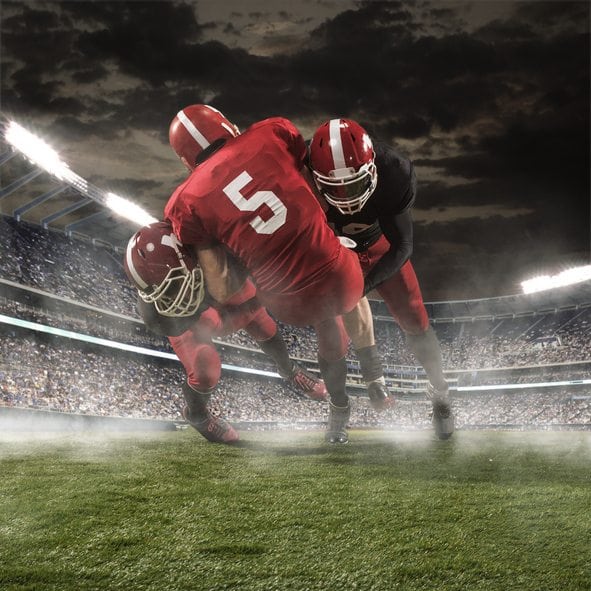Will the ominous study published in July by the Journal of the American Medical Association (JAMA) that suggested regular hits to the head can cause a degenerative brain disease, Chronic Traumatic Encephalopathy (CTE), change the way football players and the game’s fans approach the upcoming season?
Probably not. John Urschel, a Baltimore Ravens offensive lineman, announced his retirement at age 26 because of the study. (He’s now a doctoral candidate in applied mathematics at the Massachusetts Institute of Technology.) But he’s an exception. As fall approaches, it’s still football as usual.
Here’s why Urschel retired: Researchers at Boston University’s Chronic Traumatic Encephalopathy (CTE) Center found CTE in 110 of 111 NFL player brains donated to research after they died. Of the 202 brains in the study, 87 percent (117) revealed signs of CTE. Many current and former players already say they have experienced indicators of possible brain damage.
“CTE is a gradually progressive-in-onset disease,” said Dr. Mark Alberts, physician-in-chief of the Hartford HealthCare Ayer Neuroscience Center. “Some of the classic signs and symptoms of CTE include confusion, difficulty with memory, depression, personality change, aggressiveness and, in some cases, suicide,” he said.
CTE remains relatively rare in the general population . It most often affects athletes in sports that include repeated blows to the head and frequent concussions, such as football, boxing, ice hockey and rugby. It is not exclusive to athletes, however, and may be experienced by victims of domestic violence.
“(This study) is another piece of evidence confirming, in a select group of football players, that this disease is relatively common,” said Dr. Alberts.
According to the BU CTE Center, “This [repeated] trauma triggers progressive degeneration of the brain tissue, including the buildup of an abnormal protein called tau. These changes in the brain can begin months, years, or even decades after the last brain trauma or end of active athletic involvement.”
Awareness of CTE has led to greater diligence in treating concussions at all levels of sport, from kids’ leagues to the professional realm.
Signs, symptoms and prevention of concussion that everyone needs to know:
[huge_it_gallery id=”40″]
Think you or someone you know might have a concussion? Get a professional assessment at one of our urgent care centers. For more information and locations, click here.


